
First Retrospective of the Indian-born Master Printmaker Spans Five Decades of Her Career
Exhibition: Zarina: Paper Like Skin
Venue: Solomon R. Guggenheim Museum
1071 Fifth Avenue, New York
Location: Annex Level 4
Dates: January 25–April 21, 2013
Zarina: Paper Like Skin, the first retrospective to explore the career of Indian-born American artist Zarina Hashmi, will be on view at the Solomon R. Guggenheim Museum from January 25 through April 21, 2013. Featuring approximately 45 works, the exhibition charts the artist’s developmental arc from the late 1960s to the present and includes woodblock prints, etchings, and lithographs, in addition to a small selection of related sculptures in bronze and cast paper pulp, many of which will be on display for the first time. The Guggenheim Museum’s recent acquisition—a suite of twenty works from a major series of pin drawings from 1975 to 1977—serves as a fulcrum for the presentation, which was conceived in close collaboration with the artist.
Zarina: Paper Like Skin was organized by the Hammer Museum, Los Angeles.
The presentation at the Solomon R. Guggenheim Museum is supported in part by the Leadership Committee for Zarina: Paper Like Skin, with special thanks to Luhring Augustine, New York.
The exhibition has been curated by Allegra Pesenti, Curator, Grunwald Center for the Graphic Arts, Hammer Museum, where it opened in September 2012. The Guggenheim presentation is organized by Sandhini Poddar, former Associate Curator of Asian Art, with Helen Hsu, Assistant Curator, Solomon R. Guggenheim Museum.
Established as a printmaker, Zarina, who prefers to use her first name only, also considers herself to be a sculptor, in part because her works often begin with the activity of carving blocks of wood. Paper is central to her practice, both as a surface to print on and as a material with its own properties and history. Zarina’s visual vocabulary is minimal, yet rich in associations with her life and themes of displacement and exile, memory and nostalgia. The concept of home—whether personal, geographic, national, spiritual, or familial—resonates throughout her oeuvre.
While Zarina’s work has roots in abstraction, it has always been informed by a profound sociopolitical awareness. Born in the northern Indian city of Aligarh in 1937, Zarina has spent nearly her entire adult life outside of her native country. The border between India and Pakistan that was demarcated by the 1947 partition caused the displacement and death of millions of people, and eventually forced Zarina’s family to leave their home in 1959. Since then, her visits to India have not been simple homecomings. In 1958, she began a life abroad, relocating to different cities around the world, including Bangkok, New Delhi, Paris, Bonn, Tokyo, Los Angeles, and Santa Cruz, though she has primarily lived in New York since 1976. Paper has been a transportable medium for the artist, readily available wherever her travels have taken her.
Zarina’s earliest works demonstrate a formal immersion in the possibilities of the medium and a commitment to Minimalism and abstraction. Her mature works display interventions on paper that are at once fierce and delicate; she pierces, folds, scratches, and cuts monochromatic grounds, creating textured surfaces that invite intimate viewing and extended contemplation. The artist emphasizes the sculptural sensibility that underlies printmaking, found in the act of carving a woodblock or assembling a relief collage. In the 1980s, she literalized this interest by casting three-dimensional works with paper pulp. These forms would lead to sculptures in bronze. As with her prints, these works were inspired by organic sources, especially plants, and the regular geometries of architecture. Zarina often uses handmade paper from India, Japan, or Nepal—artisanal varieties with various textures, luminosities, and degrees of ink absorption, providing a wide spectrum of grounds. Paper is also allied with literary tradition. Profoundly influenced and inspired by Urdu poetry, literature, and calligraphy, Zarina embeds her work with evocative quotations and references.
Her most recent works are imbued with a meditative spirituality. She has made a series of sculptures based on strands of Muslim prayer beads. She increasingly incorporates luminous elements like gold and obsidian into her compositions. In paper works, she employs single sheets rising 6 feet tall. With sculptural tasbihs, precious materials, and augmented scale, Zarina directs the viewer’s mind to ideas of nothingness and infinity, encumbrance and enlightenment, eternity and nevermore. Zarina: Paper Like Skin encompasses autobiographical topographies of distances traveled and time spent, presenting works that superimpose historical events and personal experience by way of the elusive, ineffable yet essential idea of home.
Zarina’s work has been included in recent major exhibitions throughout the United States, including: WACK! Art and the Feminist Revolution, Museum of Contemporary Art, Los Angeles (2007), P.S. 1 Contemporary Art Center (now MoMA PS1), New York (2008), and Vancouver Art Gallery (2008–09); Gouge: The Modern Woodcut 1870 to Now, Hammer Museum, Los Angeles (2008–09); The Third Mind: American Artists Contemplate Asia, 1860–1989, Solomon R. Guggenheim Museum, New York (2009); and Mind and Matter: Alternative Abstractions, 1940s to Now, Museum of Modern Art, New York (2010). She also participated in the Gwangju Biennial, South Korea (2008), and Istanbul Biennial (2011), and was one of four artists to represent India at the Venice Biennale (2011).
Exhibition Catalogue
The exhibition is accompanied by a fully illustrated catalogue with essays by Allegra Pesenti, Curator, Grunwald Center for the Graphic Arts, Hammer Museum, Sandhini Poddar, former Associate Curator of Asian Art, Solomon R. Guggenheim Museum, and Aamir Mufti, professor of comparative literature at the University of California, Los Angeles.
Education and Public Programs
For complete information about the range of public programs presented this spring, visit guggenheim.org/publicprograms.
Guided Tours
Free with museum admission
Conservator’s Eye
Friday, March 22, 2 pm
Led by conservator Jeffrey Warda
Curator’s Eye
Friday, March 29, 2 pm
Led by curator Helen Hsu
The Elaine Terner Cooper Education Fund
Conversations with Contemporary Artists
Zarina
Friday, March 1, 6:30 pm
Zarina Hashmi discusses her artistic practice with Andreas Huyssen,
Villard Professor of German and Comparative Literature, Columbia
University, on the occasion of her retrospective Zarina: Paper Like Skin.
$12, $8 members, free for students with a valid ID and an advance RSVP at guggenheim.org/publicprograms.
Film Screenings
In conjunction with the exhibition Zarina: Paper Like Skin, the
first major exploration of the Indian-born American artist’s career, the
Guggenheim is pleased to screen two significant feature-length films
chosen by Zarina. These selections explore the complex sociopolitical
histories of the Indian subcontinent through intimate individual dramas,
reflective of the artist’s interest in the concept of home, whether
personal, national, or familial.
Silent Waters (Khamosh Pani), 2003
Fridays, January 25 and February 1, 2 pm
Dir. Sabiha Sumar, DVD, Punjabi and Urdu with English subtitles, 99 min.
Courtesy First Run Features
Set in the late 1970s when General Muhammad Zia-ul-Haq took control of Pakistan and encouraged Islamic nationalism, Silent Waters follows
the lives of a widowed mother, Ayesha, and her young son, Saleem, as
their village in Punjab succumbs to radical influence. Framed by a
backdrop of political turbulence, the film examines Ayesha’s life as she
struggles with the return of her haunted past, brought on by her
beloved son’s choice to take up with a emergent group of
fundamentalists.
The Chess Players (Shatranj Ke Khilari), 1977
Fridays, February 8 and 15, 2 pm
Dir. Satyajit Ray, DVD, Urdu with English subtitles, 115 min.
Courtesy Kino Lorber
On the eve of the Indian Rebellion of 1857, The Chess Players
follows two chess-obsessed landowners as they pour every ounce of
passion into a never-ending game of chess amidst unfolding political
drama in the kingdom of Awadh. While an ambitious British general plots
his own moves against the kingdom, hoping to take control of the region
for his Queen, the titular chess players remain, heedless of their
political and familial responsibilities, resolutely continuing their
game as British soldiers storm their homeland.
Film screenings are free with museum admission unless otherwise
indicated and are shown in the New Media Theater in the Sackler Center
for Arts Education. Visit guggenheim.org/filmscreenings for the complete schedule.Â
About the Solomon R. Guggenheim Foundation
Founded
in 1937, the Solomon R. Guggenheim Foundation is dedicated to promoting
the understanding and appreciation of art, primarily of the modern and
contemporary periods, through exhibitions, education programs, research
initiatives, and publications. The global network that began in the
1970s when the Solomon R. Guggenheim Museum, New York, was joined by the
Peggy Guggenheim Collection, Venice, has expanded to include the
Guggenheim Museum Bilbao (opened 1997), the Deutsche Guggenheim in
Berlin (1997–2013), and the Guggenheim Abu Dhabi (currently under
development). Looking to the future, the Guggenheim Foundation continues
to forge international collaborations that take contemporary art,
architecture, and design beyond the walls of the museum. More
information about the foundation can be found at guggenheim.org.
VISITOR INFORMATION
Admission:
Adults $22, students/seniors (65+) $18, members and children under 12
free. Admission includes an audio tour of the current exhibitions in
English, in addition to an audio tour presenting highlights from the
Guggenheim’s permanent collection and information about the building,
available in English, French, German, Italian, and Spanish.
Museum Hours: Sun-Wed, 10 am-5:45 pm; Fri, 10 am-5:45 pm; Sat, 10 am-7:45 pm; closed Thurs. On Saturdays, beginning at 5:45 pm, the museum hosts Pay What You Wish. From October 5 through January 23, extended hours from 10 am–8 pm will be offered on Sundays and Mondays, with the exception of holidays on December 24 and 31. For general information, call 212 423 3500 or visit the museum online at:
guggenheim.org
twitter.com/guggenheim
facebook.com/guggenheimmuseum
youtube.com/guggenheim
flickr.com/guggenheim_museum
foursquare.com/guggenheim
For publicity images visit guggenheim.org/pressimages
User ID: photoservice
Password: presspass
#1273
January 22, 2013 (Updated from December 10, 2012)
FOR ADDITIONAL INFORMATION CONTACT
Keri Murawski, Senior Publicist
Solomon R. Guggenheim Museum
Kataloge/Medien zum Thema:
Zarina Hashmi
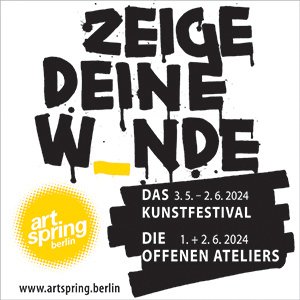
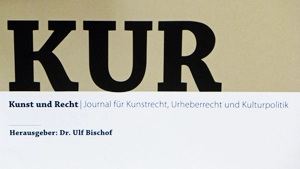
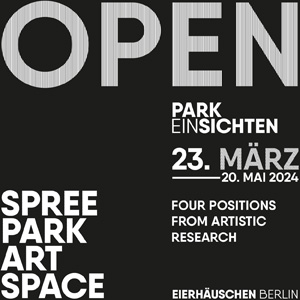
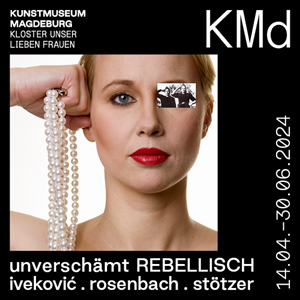
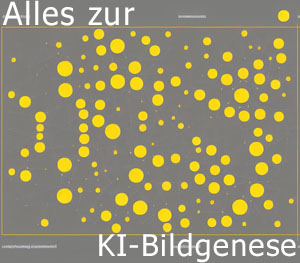
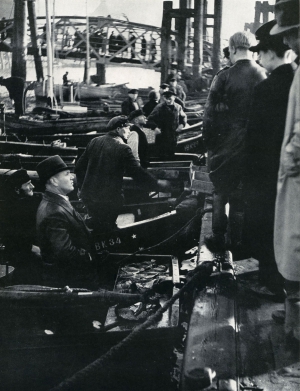
Alfred Ehrhardt Stiftung
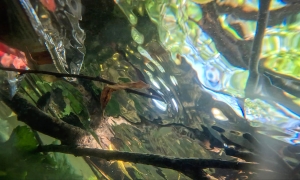
Kunstbrücke am Wildenbruch
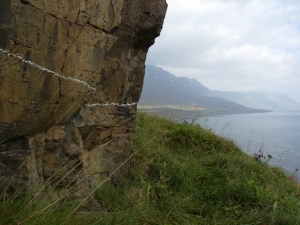
Galerie Nord | Kunstverein Tiergarten
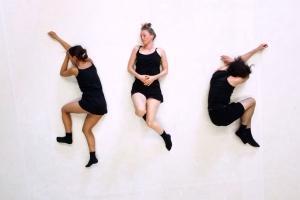
GEDOK-Berlin e.V.
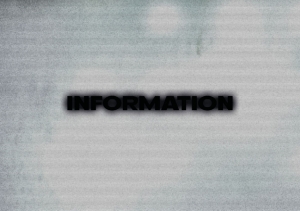
Galerie HOTO